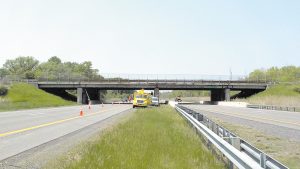In an emergency where minutes are critical, medical professionals sometimes determine that patients need to be airlifted to a hospital rather than transported by traditional ambulance. This is particularly true in rural areas, where emergency rooms can be hundreds of miles away. During these occasions, decisions need to be made quickly and the last thing […]
Get Instant Access to This Article
Become a Central New York Business Journal subscriber and get immediate access to all of our subscriber-only content and much more.
- Critical Central New York business news and analysis updated daily.
- Immediate access to all subscriber-only content on our website.
- Get a year's worth of the Print Edition of The Central New York Business Journal.
- Special Feature Publications such as the Book of Lists and Revitalize Greater Binghamton, Mohawk Valley, and Syracuse Magazines
[bypass-paywall-buynow-link link_text="Click here to purchase a paywall bypass link for this article"].
In an emergency where minutes are critical, medical professionals sometimes determine that patients need to be airlifted to a hospital rather than transported by traditional ambulance. This is particularly true in rural areas, where emergency rooms can be hundreds of miles away. During these occasions, decisions need to be made quickly and the last thing EMT personnel and the patient are thinking about is how much the air transportation is going to cost and how will the cost be paid. Unfortunately, situations have arisen where patients who have utilized an air ambulance get the unwelcome surprise of receiving a huge bill (often exceeding $50,000) for the service. In these cases, the patient receives the bill because either his health insurer does not cover air-ambulance services, or the service was provided outside of his health-insurance network.
To try to protect patients from getting socked by these costs, a number of states have tried to regulate the air-ambulance industry. Unfortunately, such regulations have been overturned by courts on the basis that any state regulation of such transport is preempted by the Airline Deregulation Act (ADA) and therefore outside of the states’ regulatory authority. Presumably, the federal government could enact legislation to exempt air-ambulance regulation from being preempted by the ADA, but unfortunately so far has failed to do so.
While the ideal situation would be to have the federal government act, that does not appear to be forthcoming. In the meantime, I have been working with the air-ambulance industry and insurers through the National Conference of Insurance Legislators (NCOIL) to craft model legislation that would protect patients from being charged such substantial bills while at the same time insulate the legislation from being preempted by the ADA. I am pleased to say that NCOIL recently adopted a model bill, which I sponsored, that will accomplish just this.
Essentially, this model bill, which any state can use as a basis for its own legislation, would take the patient out of the billing process for air-ambulance services. Rather, the patient’s health insurer would be responsible for such payment even if the air-ambulance provider is out-of-network. The health insurer would be required to pay either (a) the amount billed by the air-ambulance service; (b) an amount negotiated with the air-ambulance service; or (c) what the insurer pays to an air ambulance in its network which cannot be less than the average rates published by air-ambulance services as determined by the state’s department of insurance.
If there is a disagreement between the insurer and the air-ambulance service regarding the bill, the model legislation provides for an independent dispute resolution where an independent reviewer could determine a binding amount that both parties would be forced to accept. The creativeness of the model legislation is that it gets around the ADA preemption issue by requiring any air-ambulance service that wishes to participate in the independent dispute-resolution process to waive its right to claim preemption under the ADA. It is anticipated that air-ambulance services would rather collect their costs from a health insurer rather than a patient and therefore will be motivated to agree to the independent dispute-resolution process and to waiving any claim of preemption.
Working with other state legislators from around the country, I am proud to have been able to come up with a solution to a problem that has caused tremendous financial hardship on families. In an emergency, a patient should not have to worry about whether necessary services, in this case air-ambulance services, will bankrupt his or her family. I look forward to introducing this model bill in the New York State Legislature this year and I am confident that the necessary support can be achieved to see the bill enacted into law.
 William (Will) A. Barclay is the Republican representative of the 120th New York Assembly District, which encompasses most of Oswego County, including the cities of Oswego and Fulton, as well as the town of Lysander in Onondaga County and town of Ellisburg in Jefferson County. Contact him at barclaw@assembly.state.ny.us, or (315) 598-5185.
William (Will) A. Barclay is the Republican representative of the 120th New York Assembly District, which encompasses most of Oswego County, including the cities of Oswego and Fulton, as well as the town of Lysander in Onondaga County and town of Ellisburg in Jefferson County. Contact him at barclaw@assembly.state.ny.us, or (315) 598-5185.



